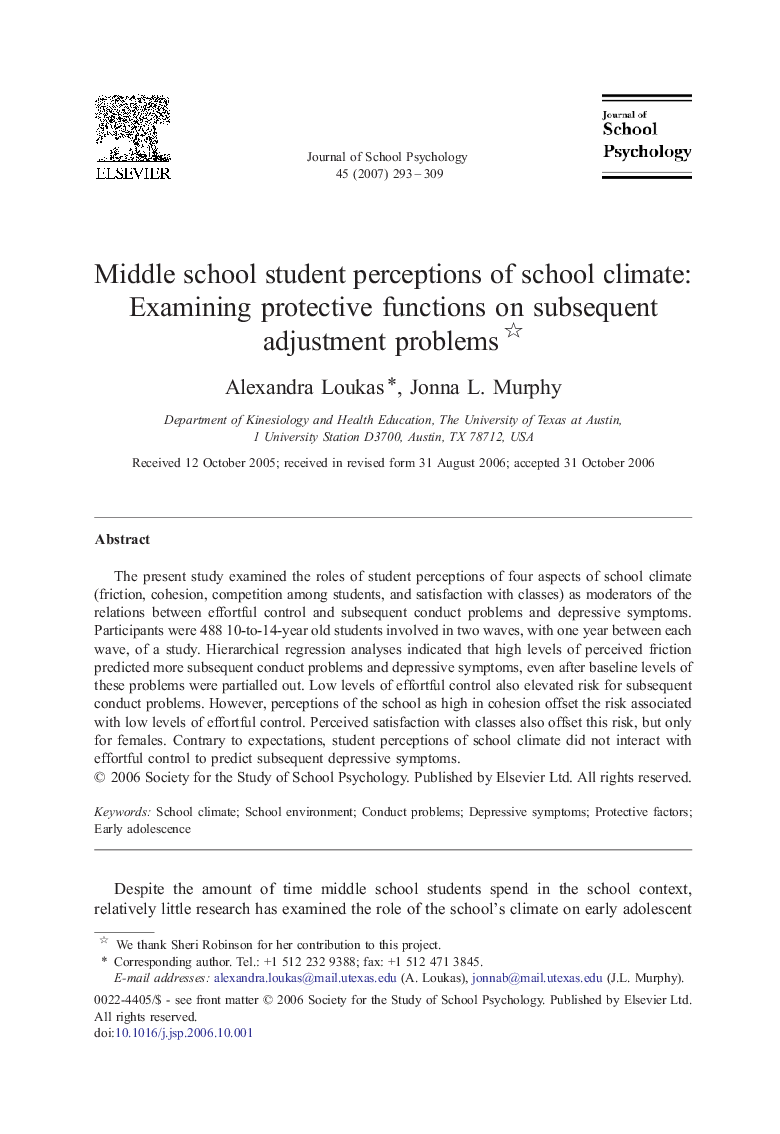| Article ID | Journal | Published Year | Pages | File Type |
|---|---|---|---|---|
| 363832 | Journal of School Psychology | 2007 | 17 Pages |
The present study examined the roles of student perceptions of four aspects of school climate (friction, cohesion, competition among students, and satisfaction with classes) as moderators of the relations between effortful control and subsequent conduct problems and depressive symptoms. Participants were 488 10-to-14-year old students involved in two waves, with one year between each wave, of a study. Hierarchical regression analyses indicated that high levels of perceived friction predicted more subsequent conduct problems and depressive symptoms, even after baseline levels of these problems were partialled out. Low levels of effortful control also elevated risk for subsequent conduct problems. However, perceptions of the school as high in cohesion offset the risk associated with low levels of effortful control. Perceived satisfaction with classes also offset this risk, but only for females. Contrary to expectations, student perceptions of school climate did not interact with effortful control to predict subsequent depressive symptoms.
